Before Christmas, we spoke to LWA member Bec Briar, The Woven Briar, a shepherd, spinner and weaver living between the Quantock Hills and Exmoor. In this article, she explains what drew her to raising sheep, the values that guide her hand as a shepherd and worker of wool, and how welfare – of her sheep, of the land, and of workers around the world – is central to her story.
“It’s quite a leap to give up any form of sort of, steady income and go sit in a field with a bunch of sheep and trust that it’s going to be okay”, says Bec Briar from her rented workshop on the edge of Exmoor, where she was busy preparing products from high-welfare, blade shorn wool for the Christmas season.
It’s where her loom lives, where she weaves scarves and blankets by hand, and where she teaches workshops in heritage skills like wool-spinning, weaving and natural dyeing using fleeces and plants from the farm. It’s also on the land where she raises 61 (at the time of interview) primitive and heritage sheep, bred for their wool quality – Shetland and Icelandics, as well as rare breed Portlands and Exmoor Horns.
In 2019, Bec bought some land with a barn in West Somerset with her husband Dru, who she met through a mental-health focused, non-profit woodland project they were running north of Bristol. She was determined to live a life that felt honest, ethical, kind and low impact, but becoming a sheep farmer caught her by surprise. Woodland-management and community had always been her focus, but when she brought a few sheep onto her smallholding in the early days, she fell in love: “Sheep took my interest more than anything I’d done before.”
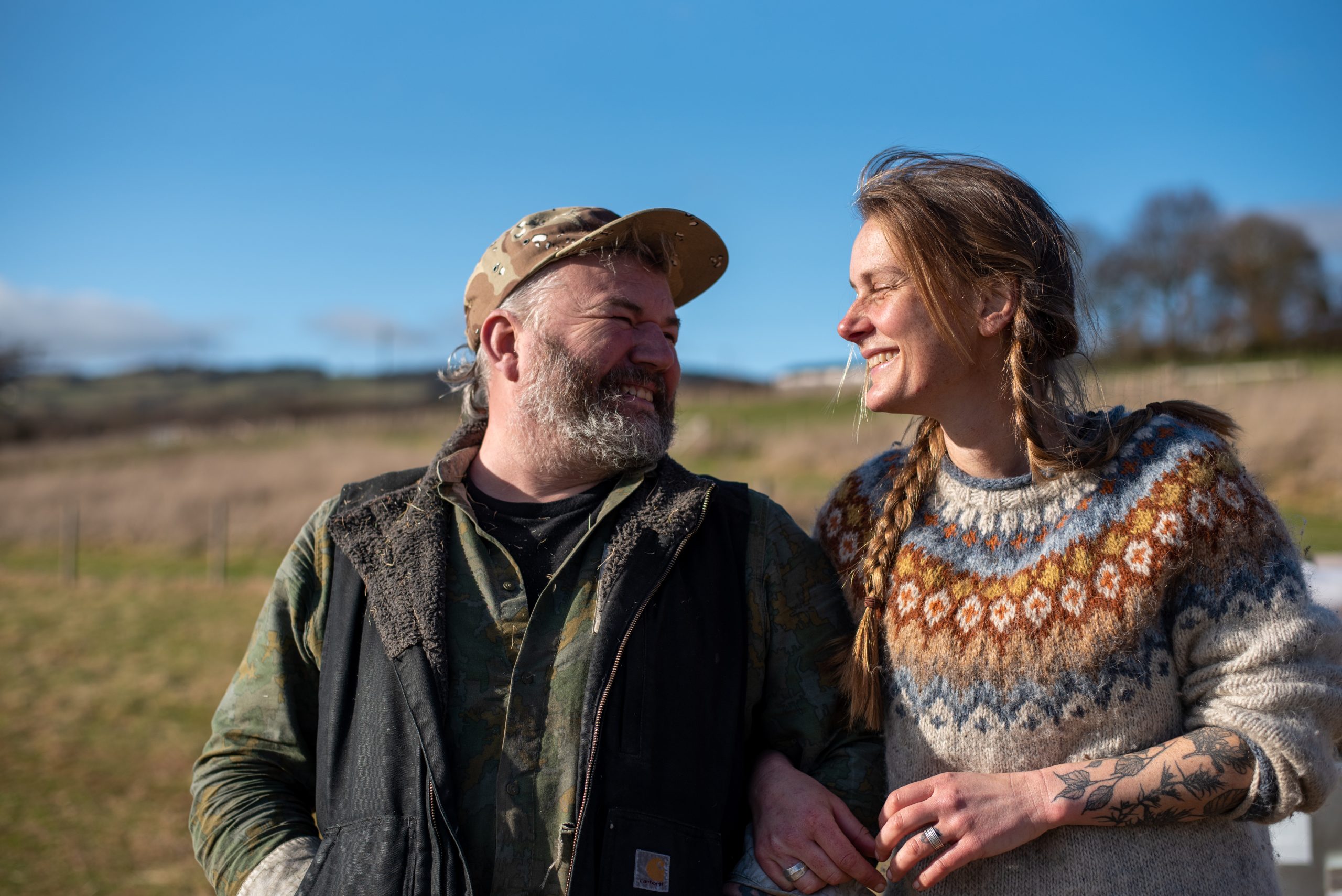
CREDIT: Bec Briar
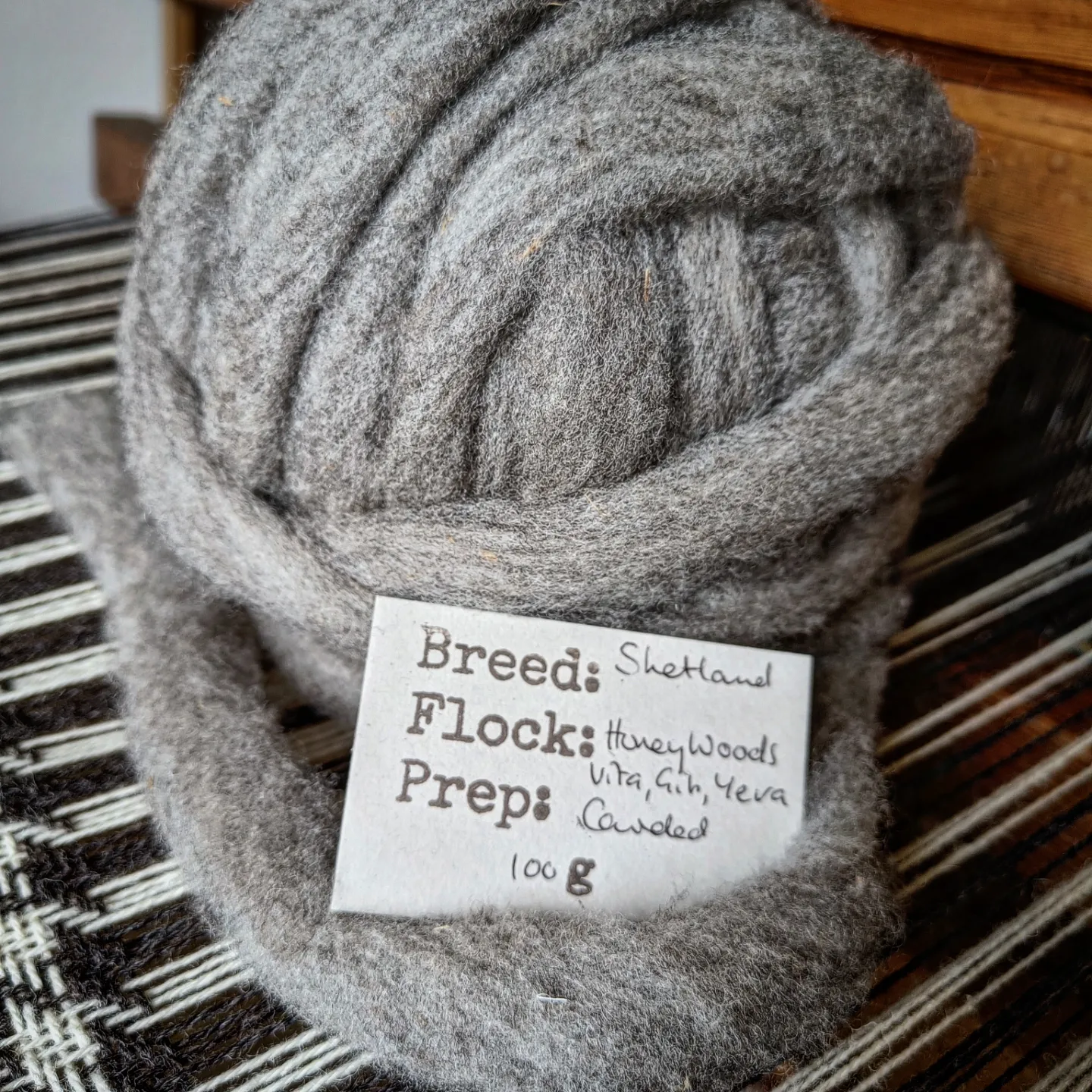
CREDIT: BEC BRIAR
“All my sheep have names – the ones we eat are all called ‘Dave’. All our friends know the ‘Dave’ system. It just makes it easier for everyone.”
Bec Briar
Bec offers her customers ultimate traceability on her wool products – many of the weaves are named for the individual sheep that grew the wool; “All my sheep have names – the ones we eat are all called ‘Dave’. All our friends know the ‘Dave’ system. It just makes it easier for everyone.” High welfare, a short supply chain and textiles free of microplastics make these products a sustainable and ethical choice; “ They can be composted back to the earth once they are no longer used!” The story in the wool is important to Bec, and she’s keen to connect her customers to the origin of her products, the plants and soil that grew them and the land where they were raised.
Bec and Dru are planting trees and herbs for a variety of uses, many species have several uses, including for making natural inks, dying wool, culinary uses and of course for forage for their animals and wildlife. “We are creating more habitat through the planting of hedgerows, wildlife ponds, a food forest and orchard, and native woodland spaces. We regularly see deer, owls and kestrels, bats and other creatures grazing or hunting through the wildflower swathes and uncut meadow grass. We always leave areas ungrazed for the mice and voles that our barn owls feed from.” Bec keeps low stock numbers, and manages her sheep in a holistic way to regenerate soils and, inspired and taught by the folks at Fernhill Farm, shears all of her sheep by hand using blade shears.
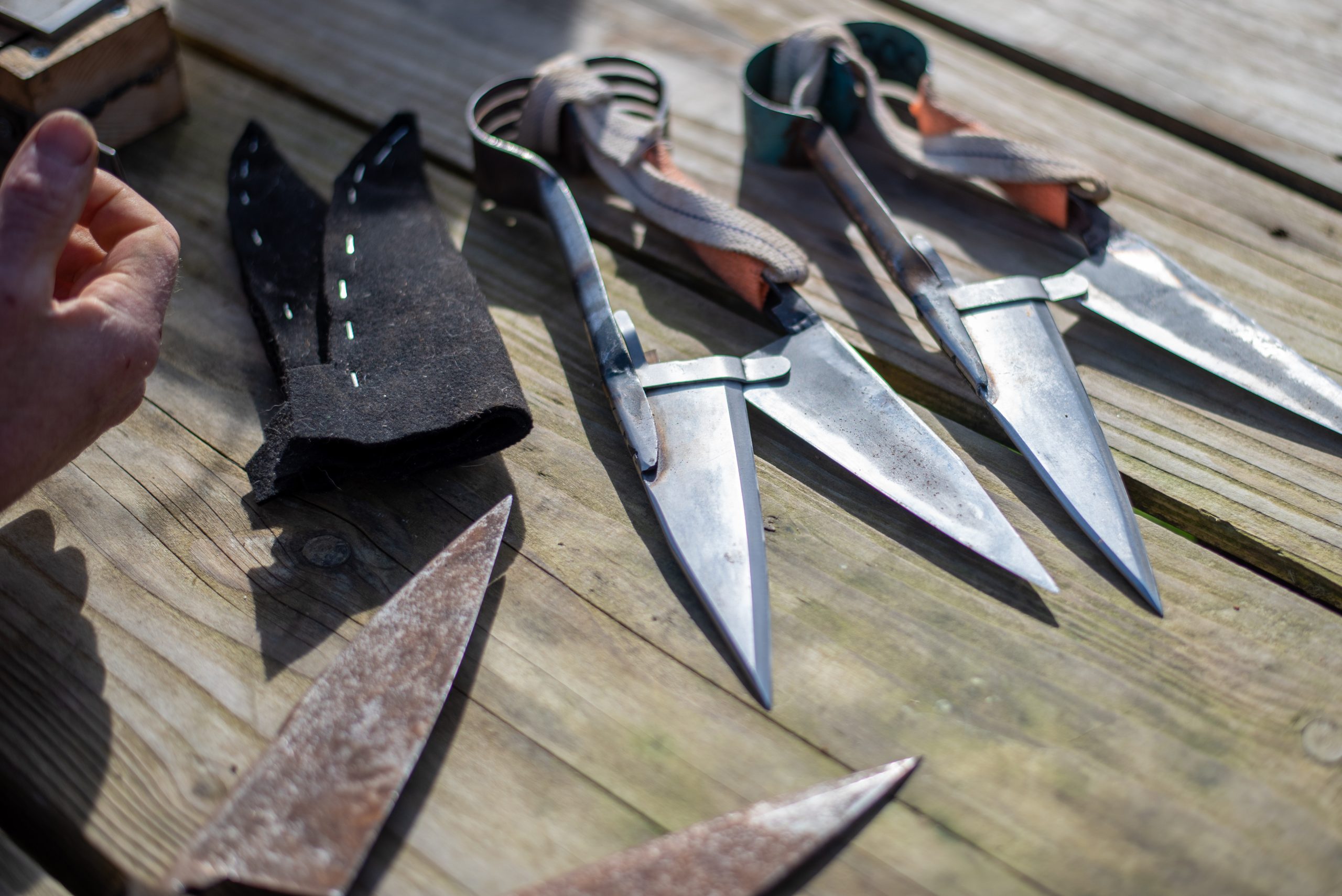
CREDIT: Bec Briar
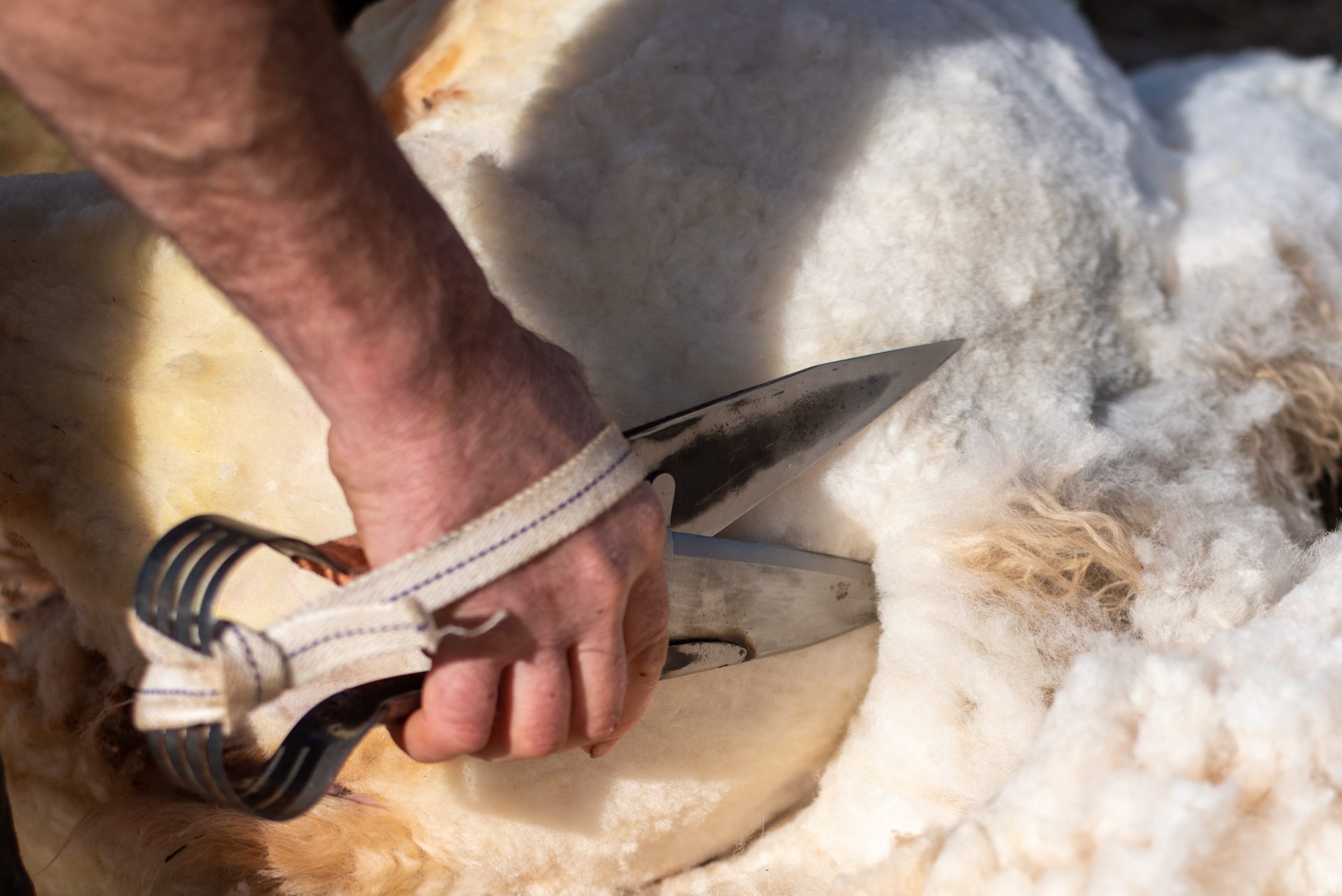
CREDIT: Bec Briar
“It is a slower process in which the shearer and I can take the time we need to look over the animals and check they are healthy and well, and the shearer has the time to get the very best out of the fleeces.”
Bec Briar
Working with Michael, her shearer, who Bec says has taught her alot, her sheep are shawn in the early Spring, before lambing, not only to reduce any negative impact on the sheep, but to improve the welfare of the animals and their young. “We shear before lambing so that the ewes can lamb free of heavy, wet, dirty, uncomfortable fleece. I then get a better fleece before it declines in quality as resources go to producing milk.”
Hand shearing leaves a layer of wool rich in lanolin on the animal which stops them being exposed to the elements. “It is a slower process in which the shearer and I can take the time we need to look over the animals and check they are healthy and well, and the shearer has the time to get the very best out of the fleeces.”
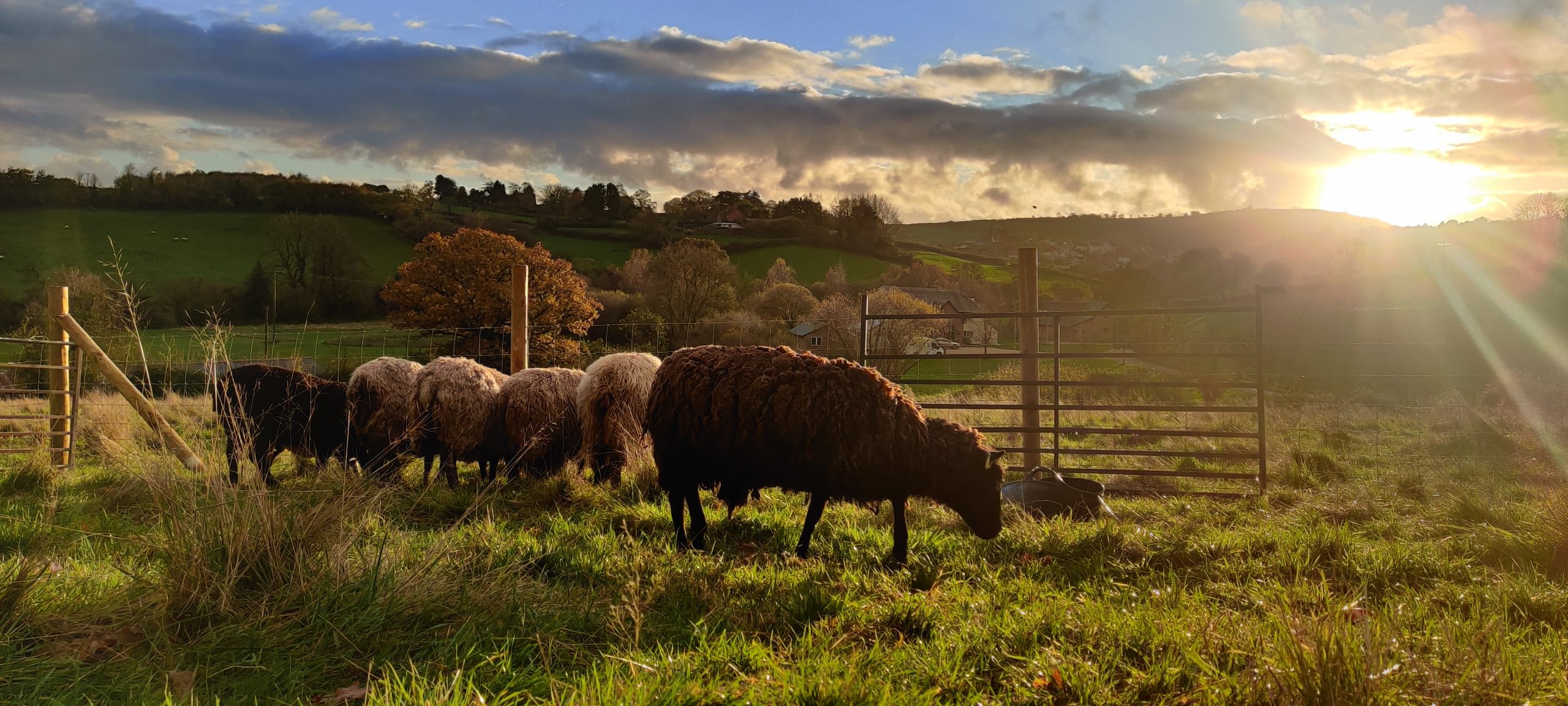
CREDIT: Bec Briar
“If a sheep has a bad Summer, if it has a bad lambing, if it’s treated badly, if it’s not given the right quality grass, you read it in the fleece. I have to look after them as best I can.”
Bec Briar
Sheep welfare is not only important to Bec because she knows each animal by name, but because it has a direct impact on her products – the quality of her wool products, the length of the wool, it’s softness and ‘crimp’ are all affected by the health of the sheep; “If a sheep has a bad Summer, if it has a bad lambing, if it’s treated badly, if it’s not given the right quality grass, you read it in the fleece. I have to look after them as best I can”.
Welfare is central to Bec’s work, not only for her sheep and the land they live on, but also for workers in the textile industry around the world. Before Bec was a shepherd, she worked for Labour Behind the Label, a workers cooperative campaigning to improve conditions and empower workers in the global garment industry, and has a very alive interest in workers rights, slave labour, factory conditions and systemic human rights abuses in the wasteful, ‘throwaway’ clothing industry.
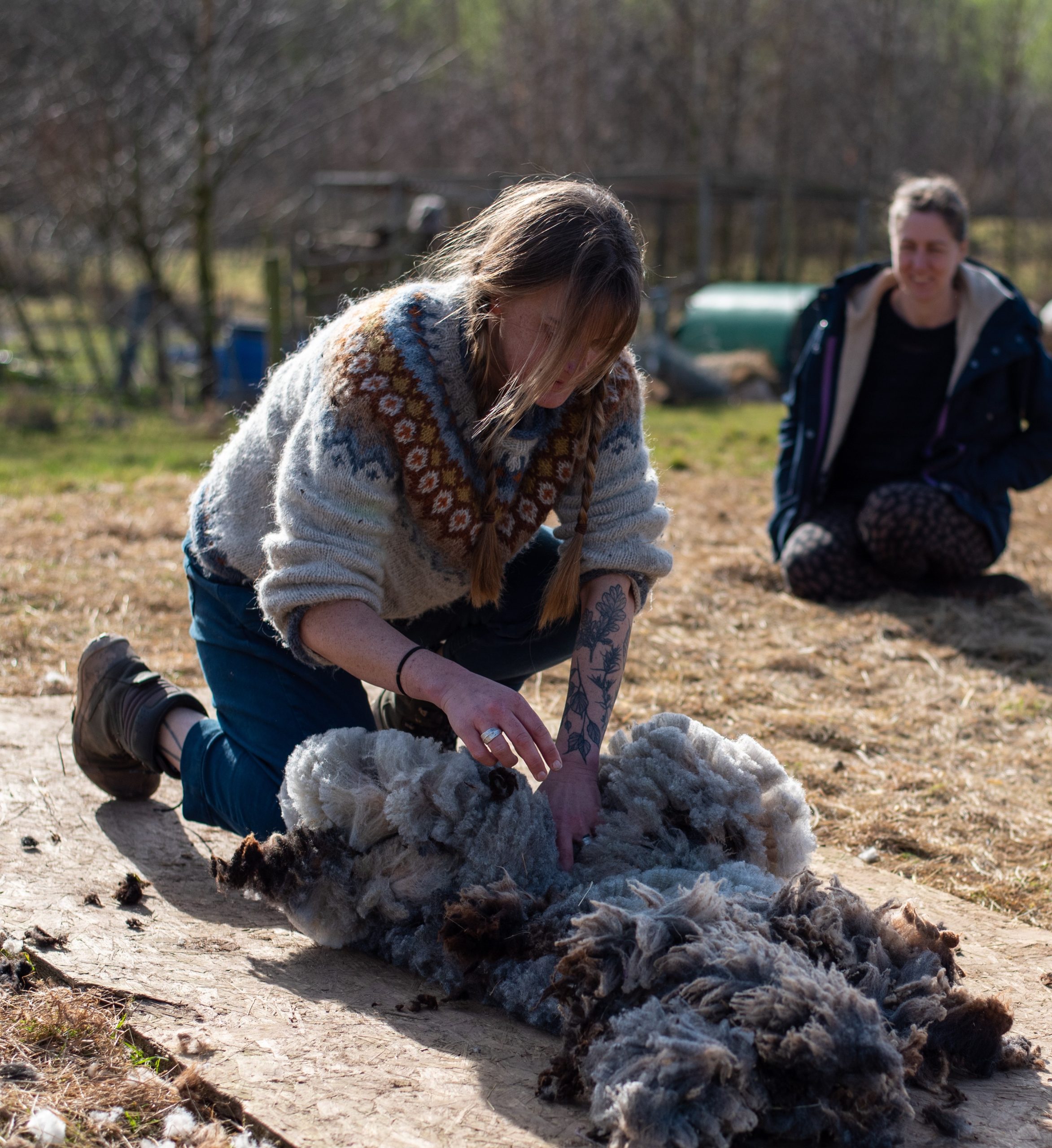
CREDIT: Bec Briar
“The garment industry turns over almost $3 Trillion a year. Yet garment workers, 80% of them women, work for poverty pay, earning as little as £68 a month. Poverty wages, long hours, forced overtime, unsafe working conditions, sexual, physical and verbal abuse, repression of trade union rights and short term contracts are all commonplace in the clothing industry.”
Though Bec understands that her products are privileged way to get clothing, she is exploring ways to help people make better decisions about where their clothes come from, and promote localised, regenerative textiles, that provide for local farmers’ livelihoods, made of the land; “I can turn grass into beautiful handwoven textiles.” She wants to offer long-lasting, high-quality and truly sustainable, locally-produced clothing that comes from the soil and will go back to the soil when it wears out – with no microplastics, little embedded carbon and no abuses of human rights.
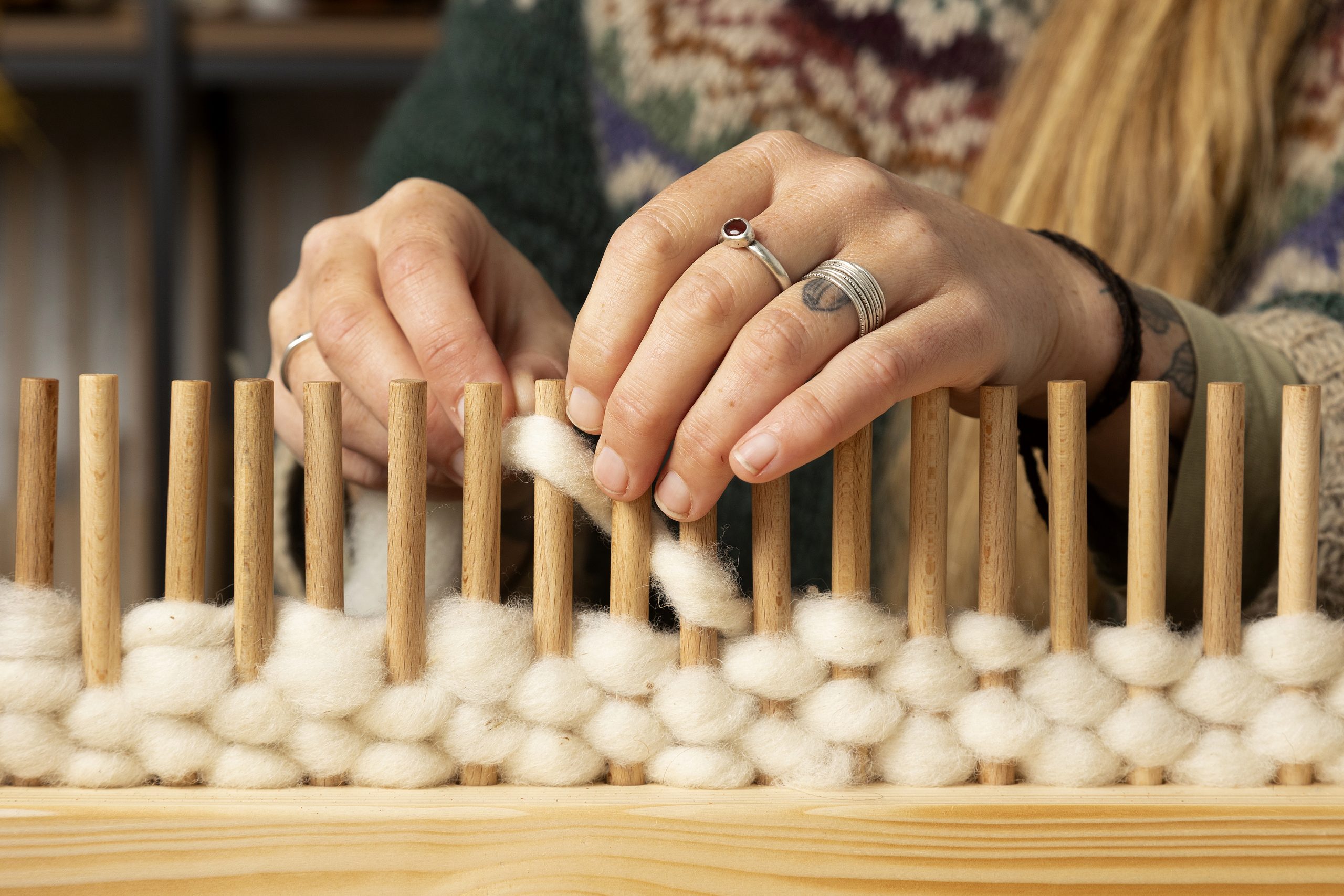
CREDIT: Bec Briar
Bec is clearly very skilled, passionate and has worked hard to be respected in an industry dominated by men. “I’ve had to show that I’m working hard. I assumed because I was a woman that I would have to work harder to get respect from some of the older farmers who’ve been here for generations…but I can reverse a trailer as well as anyone!” Bec feels like she has now been warmly welcomed into the sheep farming community “I feel like they’ve warmed to us in a way that I couldn’t have expected. If I have an issue with one of my sheep, if it’s out of hours for the vet, I can phone one of the traditional farmers in the area and they’ll be there in a flash”. But she has faced similar challenges to many of our members trying to build agroecological businesses on the land and live true to their values and beliefs. Planning regulations have been a major barrier for Bec and Dru being able to live on their land, describing planning disputes as a “massive cloud over us at all times”.
Bec says that in the face of strong opposition to what they were trying to do from neighbours and planners, she sought in the Landworkers Alliance a community that she didn’t need to explain herself to, who shared her values and validated that they were good ones; “I needed a community of people where I didn’t need to explain why living in a caravan with a compost toilet is an okay way of life – where I can learn more about land rights movements across the world and different land uses across the world, different ways of managing land.”
“There’s a mosaic of all these different ways of accessing this lifestyle, and the LWA feels like it represents them. I don’t feel like I have a voice or quite know enough to campaign, but being a (LWA) member means means I can support the campaign work that’s happening for workers, and particularly landworkers around the world”
Bec is very happy and willing to chat to anyone over a cuppa who is thinking of venturing into sheep farming or working with wool. “That’s why I joined the LWA really, for that support when I was getting started”. Talk to as many people as possible, she suggests, “find people who know more than you and listen”, and maybe think about keeping another income on the side, at least in the beginning, to give you a bit of breathing space; “If you can do accountancy on the side, try and keep that for a little while.”
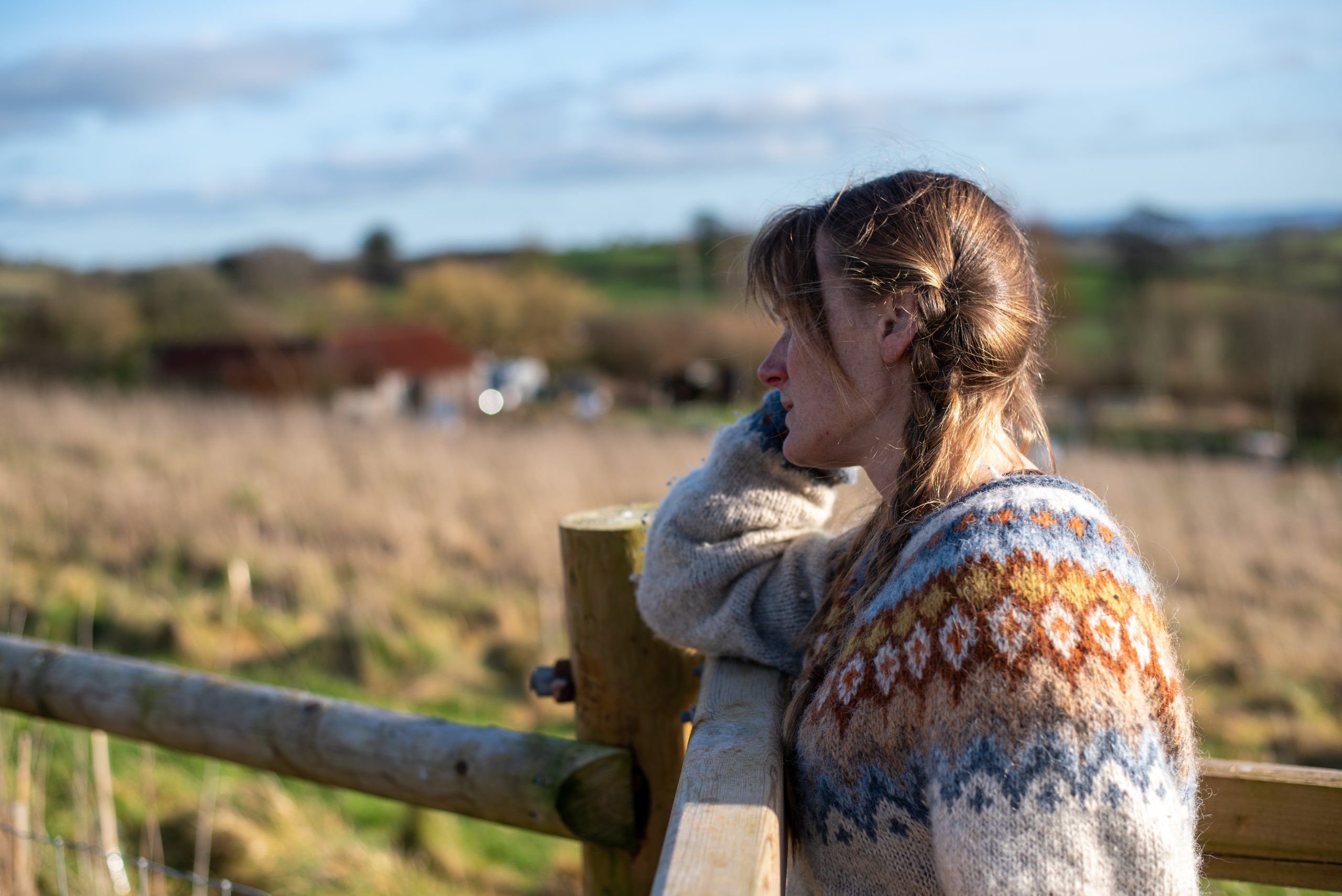
CREDIT: Bec Briar
“There’s a mosaic of all these different ways of accessing this lifestyle, and the LWA feels like it represents them. I don’t feel like I have a voice or quite know enough to campaign, but being a (LWA) member means means I can support the campaign work that’s happening for workers, and particularly landworkers around the world”
Bec Briar
If you’d like to reach out to Bec for more advice, or find out more about her story and her hand-woven scarves, sheepskin rugs, yarns, fleeces, craft kits and plant dyes head over to her website, and you can find out more about Bec’s upcoming workshops here. If you’re in West Somerset and would like to go along and help out with shearing, Bec extends a warm welcome: “Having someone there that I can say “Woah, shut that gate” is so helpful!”.

Do you have a story to tell? Would you like to feature in our ‘Landtalkers’ series of member profiles like this one?
We are so proud of the work that our members’ are doing in towns, cities and in the fields, woodlands, coastal areas of these lands. We think you voices deserve to be heard, and we want to celebrate the diversity, power and breadth of our movement, give you a platform to share what you are doing on land and demonstrate the possibility of agroecology at this moment as the great challenges of our times converge.
Are you active in your region – maybe you’ve got something to say about the challenges and opportunities where you are? We’d love to hear from new entrants or landless workers feeling their way into agroecology and understand what that’s like for you. Maybe you’re breaking new ground, forging into a sector where you don’t see people like you represented.
All sectors, scales and places in the supply chain – farmers, growers, sustainable foresters, land-based craftspeople, food processors, seaweed harvesters, millers, machinery operators and more…. We’d love to hear from you. Tell us your story or nominate someone on your farm, business, region, sector or from FLAME, REAL, OOTL or Wome

